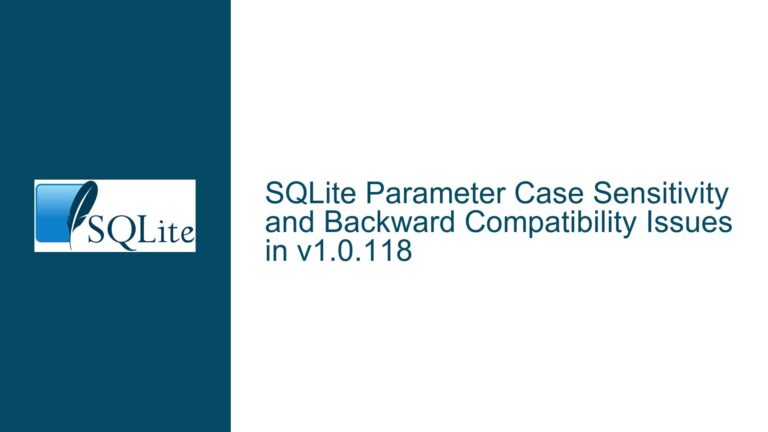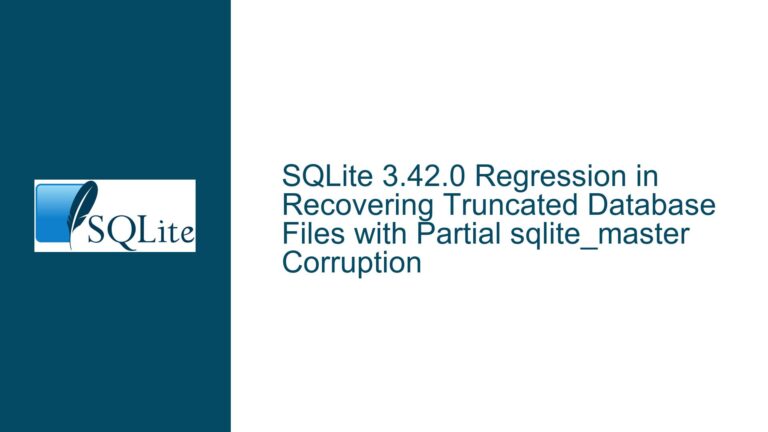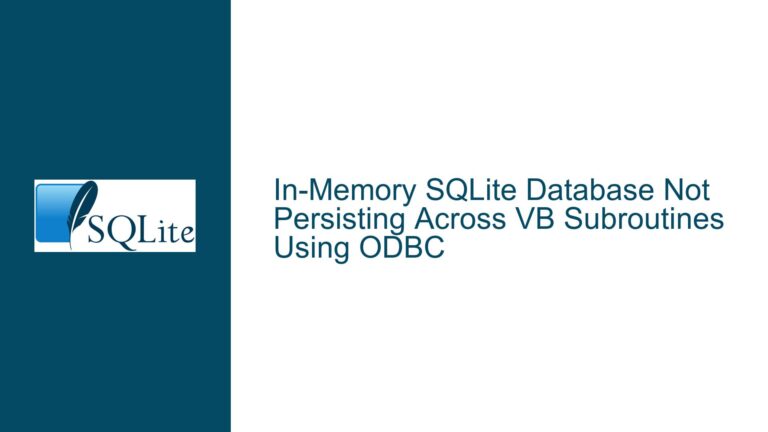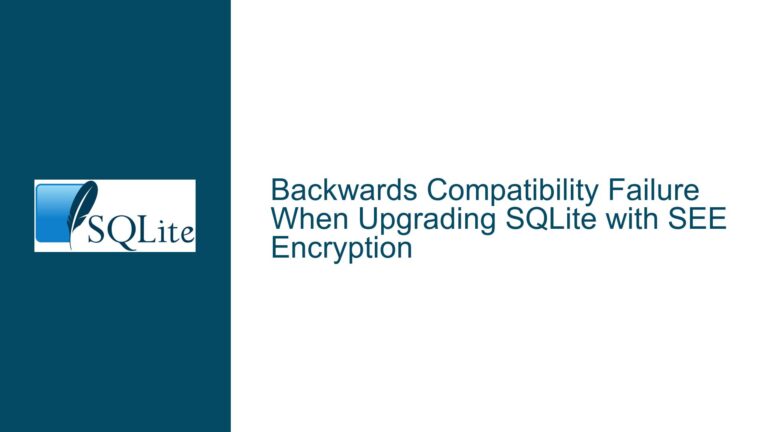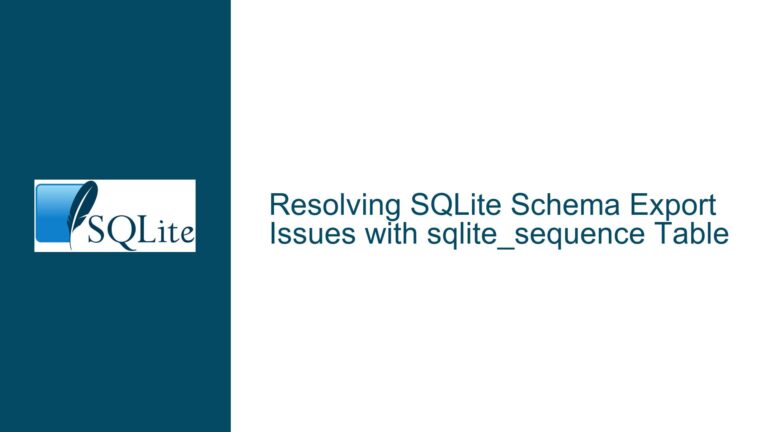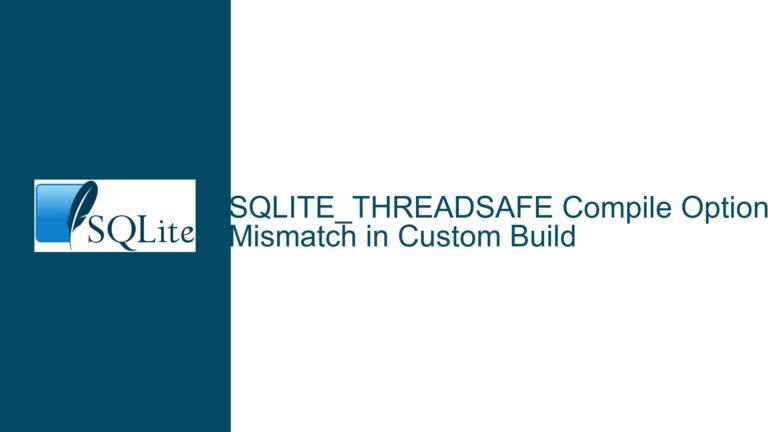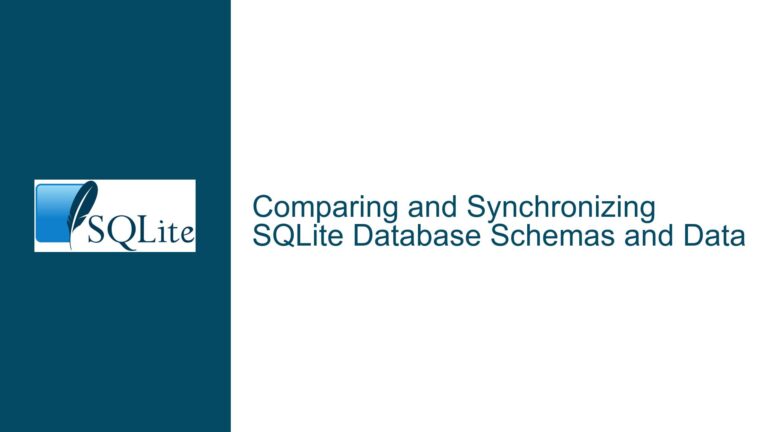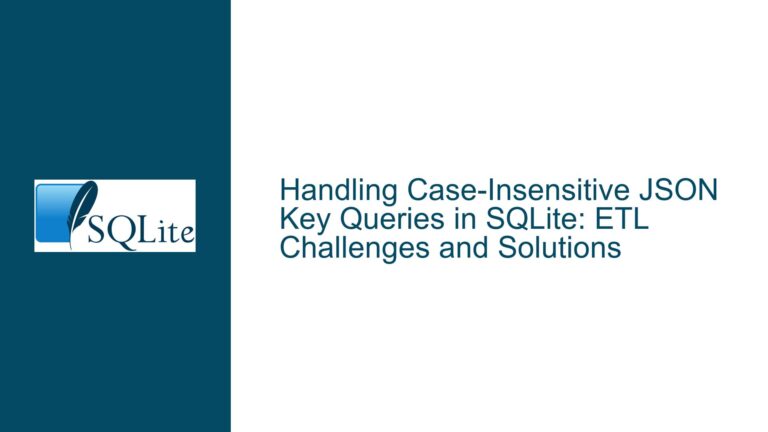SQLite Parameter Case Sensitivity and Backward Compatibility Issues in v1.0.118
Issue Overview: SQLite Parameter Case Sensitivity and Backward Compatibility The core issue revolves around an error message, "Insufficient parameters supplied to the command," which occurs when upgrading from SQLite version 1.0.117 to 1.0.118 in a VB.NET application. The application uses the System.Data.SQLite.Core.NetStandard library to interact with a SQLite database. The error arises during an INSERT…
